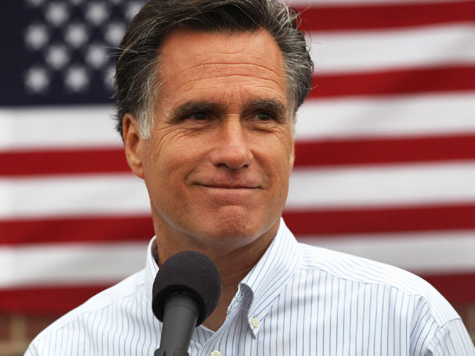Earlier we posted a video clipin which Mitt Romney was asked what he’s reading. Romney gave twotitles, a Vince Flynn novel the name of which he couldn’t recall and The Next 100 Years, A Forecast for the 21st Century by George Friedman. Does the choice of Friedman’s book offer any insight into a potential Romney foreign policy?
Friedman is the founder and editor of Stratfor, an intelligencenewsletter supported by subscriptions. As he explains in theintroduction to his book, The Next 100 Years is meant not as ascience fiction future history but as something to be taken somewhatmore seriously based on Friedman’s grasp of geopolitics:
Geopolitics applies the concept of the invisible hand to the behaviorof nations and other international actors. The pursuit of short-termself-interest by nations and by their leaders leads, in not to thewealth of nations, then at least to predictable behavior and, therefore,the ability to forecast the shape of the future international system.
So what does Friedman predict for the coming century? He offered a Cliff’s Notes version in a 2010 interview with The European Institute:
What will matter?
First,the U.S. will dominate the century because of its military and economicpower and its favorable geography with Atlantic and Pacific coasts. Nopower will rise to challenge successful U.S. dominance.
Second,the population explosion of the past century will end and populationswill begin to shrink, creating profound changes, including the positiveimportance of attracting immigrants.
Third, advanced countrieswill develop technologies to deal with shrinking populations, includingharnessing solar power and new computer and robotic technologies.
What will NOT matter?
Neither Europe nor China will be major players in the 21st Century.
Not mentioned above is Russia, which Friedman predicts will be ashort-term antagonist to the U.S. over the next decade. Could this helpexplain Romney’s recent reference to Russia as a “geopolitical foe?”
“The nation which consistently opposes our actions at the United Nationshas been Russia,” Romney said. “We’re of course not enemies. We’re notfighting each other. There’s no Cold War, but Russia is a geopoliticalfoe in that regard.”
It is interesting that Romney specifically rules out a “Cold War”given that this is very much what Friedman predicts in the next decade.But while it’s possible Friedman’s work has colored Romney’s thinking,it seems just as likely that Romney is simply looking around,particularly at the current conflict over Syria. For a year, Russia hasbeen the most vocal opponent of intervention, reportedly sending warships, soldiers and weapons to the country.
Inany case, Friedman predicts any dreams of a resurgent USSR will fade by2020. In the long run, Russia is brought down by its shift frommanufacturing to commodity sales. As already mentioned, Friedman is evenless bullish on China and Europe. China he believes can not overcomethe poverty of its massive nation or its dependence on the United Stateswhich purchases most of the goods it produces. Europe will be hamperedby internal divisions which prevent it from speaking authoritatively onthe international stage.
If there’s any sense of why Romney might be attracted to the book,perhaps it’s the author’s optimism about the United States. In hisepilogue, Friedman offers a much humbler assessment of his ownpredictive powers, but there is one thing about which he is certain:
My mission, as I see it, is to provide you with a sense of what thetwenty-first century will look and feel like. I will be wrong aboutmany details. Indeed, I may be wrong about which countries will be greatpowers and how they will resist the United States. But what I amconfident about is that the position of the United States in theinternational system will be the key issue of the twenty-first centuryand that other countries will be grappling with its rise. In the end, ifthere is a single point I have to make in this book, it is that theUnited States–far from being on the verge of decline–has actually justbegun its ascent.
Obviously we won’t know if Friedman is right about any of this forseveral decades, but this sunny view of the U.S.’s future is certainlythe kind of thing one hopes an American President would believe abouthis country.

COMMENTS
Please let us know if you're having issues with commenting.